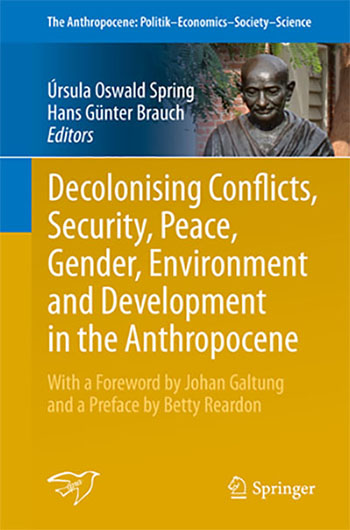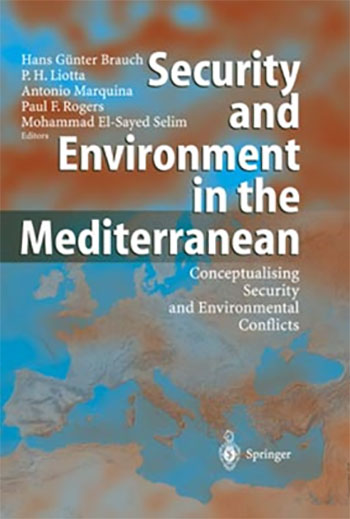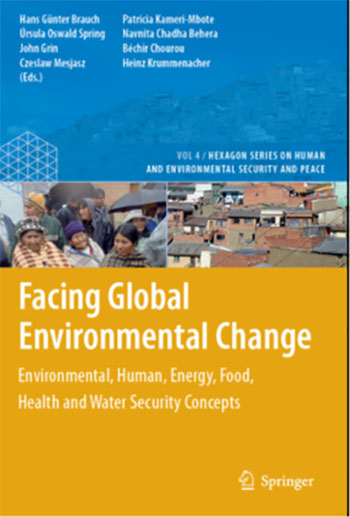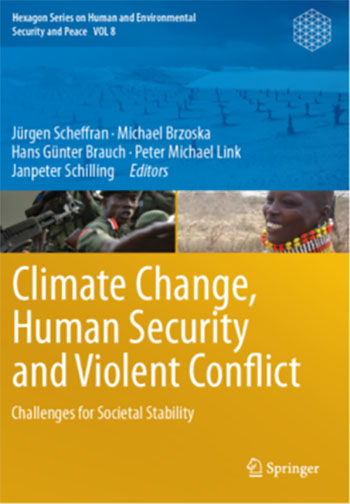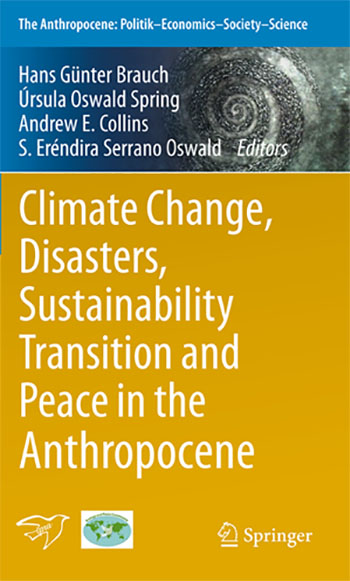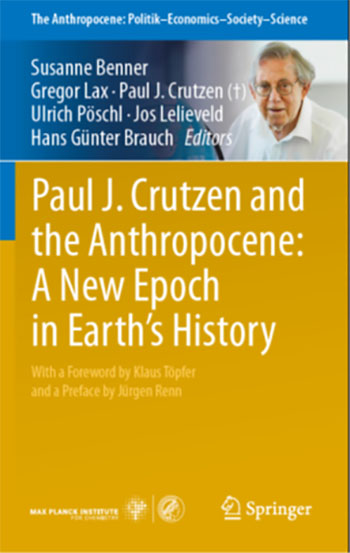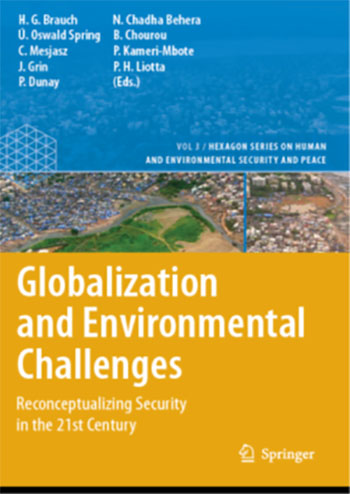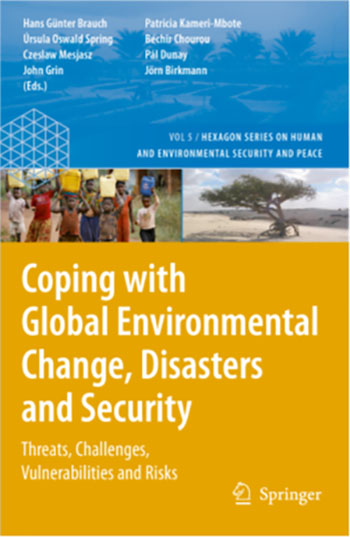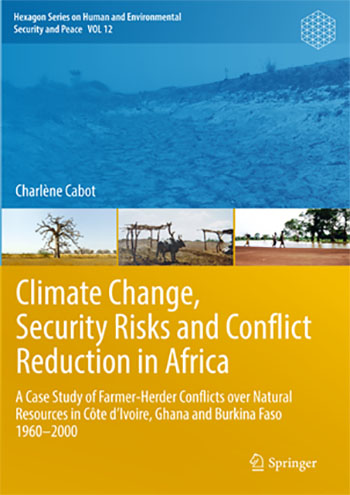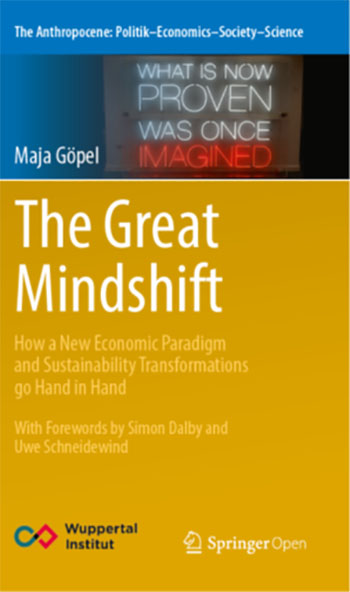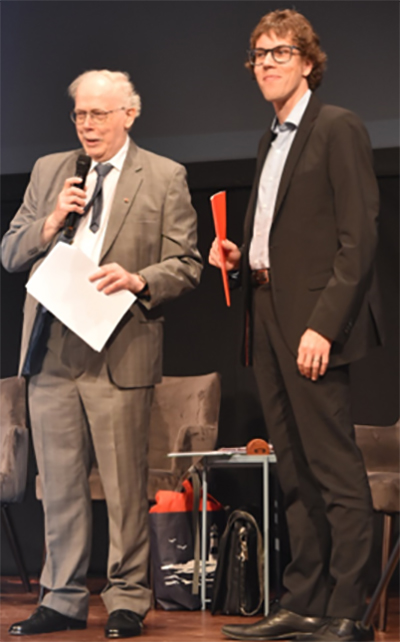 |
International Science Prize on Peace and Ecology in the Anthropocene | |||||||
| HGB- Foundation | Call for
2023 (ISP) |
Theme of 2023 (ISP) | Award Winners |
History of the Award | |
|||
| Science Prize | Call for
2024 ISP) |
Theme of 2024 (ISP) | Award Winners 2024 | |||||
| Home | German Website |
International Press | Global Jury | Call for 2025 (ISP) | Theme of 2025 (ISP) | Award Winners 2025 | ||
|
Welcome to the International Peace and Ecology Science Prize |
|
|||
In January 2025 the call for the third International Science Prize 2025 was issued globally on the following theme: |
|||||
| Impacts of Wars and Global Environmental Change on Food Insecurity, Hunger and Migration | |||||
Deadline for submissions of applications and nominations: 31 May 2025 The foundation accepts until the deadline of 31 May 2025. Applications may be submitted by scholars with a PhD from any university or research institute globally. Nominations may be made by:
In addition to the International Science Prize 2025 the Global Jury of the HGBS ISP 2025 may award again:
The third International Science Prize 2025 will be awarded on 9 October 2025 in the Hall of the Town Council in Mosbach in Baden Württemberg in South Germany. The work by the applicant must be innovative, single authored and in English. This work may be both an unpublished scientific manuscript or may have been published as a peer reviewed monograph. The HGBS Science Prize comprises of a certificate, a financial award of 3.000 € for. The prize recipient is expected to give a 30 minute acceptance speech presenting the approach and its key innovative ideas and results of this work in English. More Information on the International Science Prize 2025 (ISP 2025) you find here:
|
|||||
The Hans Günter Brauch Foundation (HGBF) on Peace and Ecology in the Anthropocene (PEA) was established on 8 May 2020 on the occasion of the 75th anniversary of the end of World War II and of the liberation from Fascism to combine a joint peace research and ecology perspective on the new challenges facing humankind’s survival in the Anthropocene.
The HGBF on Peace and Ecology in the Anthropocene supports globally scientific research and locally education in secondary schools in the county where the founder was born and has lived. The HGBF funds local educational prizes for grammar or high school students and globally this international science prize. Both Prizes will be awarded jointly to enhance the exchange of scientific results to secondary schools and the cooperation between scientists and pupils.
Between peace and security issues on the one hand and environment and sustainable development problems on the other, various relationships and linkages have been addressed in the social science literature since the 1960s in the Anthropocene Epoch:
These manifold research themes have not yet resulted in a peace ecology research programme in the Anthropocene Epoch.
The first International Science Prize of the HGB Foundation was awarded on 14 July 2023 in Mosbach Germany to Prof. Dr. Tobias Ide who teaches at Murdoch University in Perth (Australia) and at Hiroshima University in Hiroshima (Japan).
The second International Science Prize of the HGB Foundation was awarded on 10 October 2024 in Mosbach to Prof. Dr. Gregory Thaler who teaches since September 2024 at Oxford University and to Dr. Victor Tsilonis (Thessaloniki, Greece).
The work by the applicant must be innovative, single authored and in English. This work may be both an unpublished scientific manuscript or may have been published as a peer-reviewed monograph since January 2020. The HGBS Science Prize comprises a certificate, a financial award of 3.000 €, a visit to the award ceremony in Mosbach. The prize recipient is expected to give an acceptance speech of 30 minutes in English presenting the scientific approach and its key innovative ideas and results of this work. |
| Imprint | Legal Notice | Flyer |
